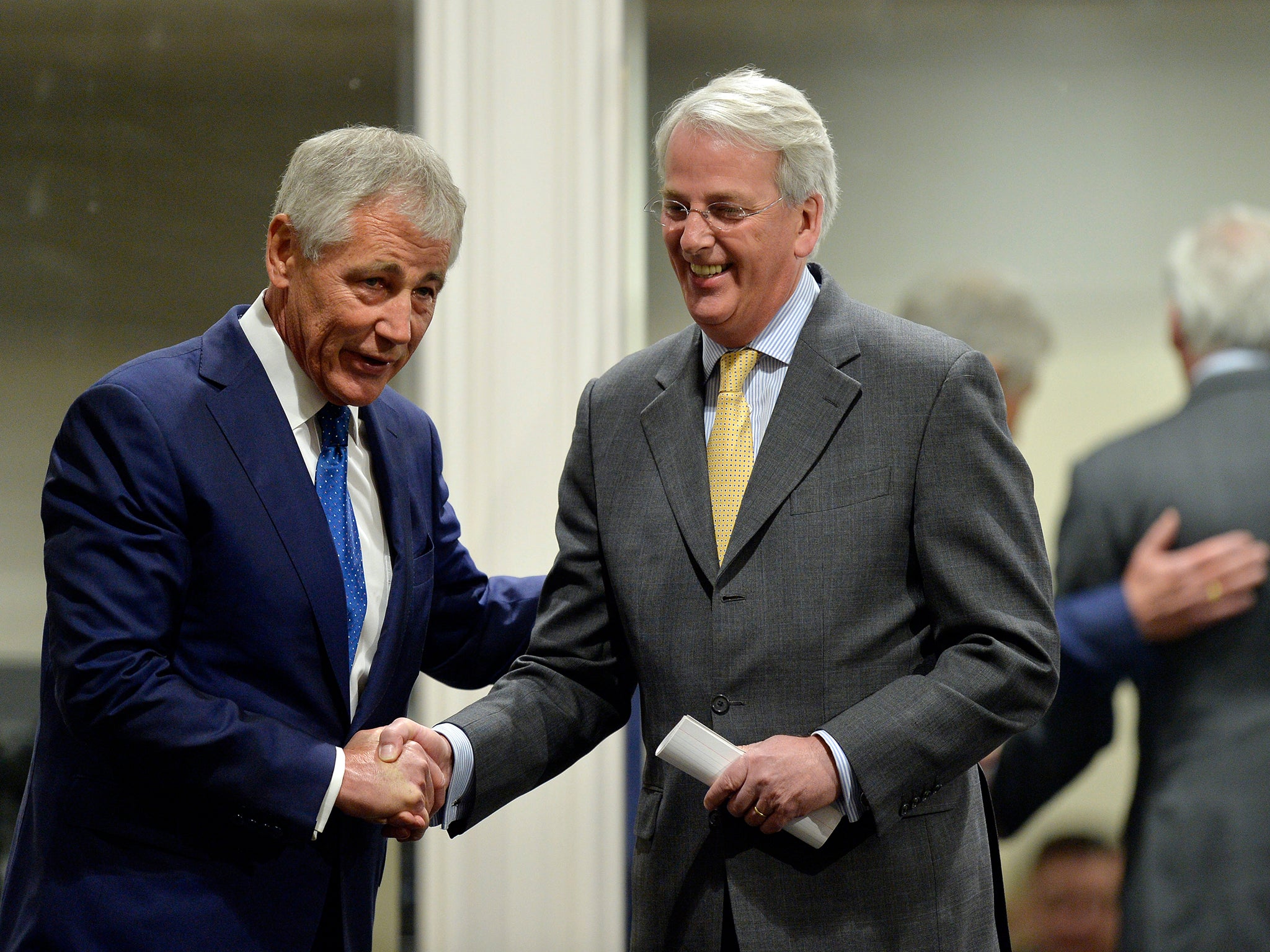Former US ambassador to Nato in withering criticism of Donald Trump
Ivo Daalder rebukes President for saying Germany owes US money for its defence

A former US ambassador to Nato has ridiculed Donald Trump’s claim that Germany owes America money for its defence.
After meeting with German Chancellor Angela Merkel in Washington, Mr Trump tweeted that it had gone well but “nevertheless, Germany owes vast sums of money to Nato and the United States for the powerful, and very expensive, defence it provides to Germany”.
But Ivo Daalder, who served as ambassador between 2009 and 2013, said Mr Trump did not seem to understand how Nato’s funding system worked as all countries decide for themselves how much they pay in.
In a Twitter thread he pointed out the US decides how much it contributes to the overall Nato budget, as do the other 27 countries signed up to the treaty, and it is not a case of it funding other countries’ defence.
All Nato countries have committed to spending two per cent of GDP on defence by 2024 but only five – the UK, Greece, Poland, US and Estonia – currently do so.
Those that don’t are currently increasing their budgets in the hope of reaching that goal – Germany’s currently stands at 1.23 per cent – which Dr Daalder said was a “good thing”.
But he explained: “No funds will be paid to the US. They are meant to increase Nato’s overall defense capabilities, given the growing Russian threat.
“Europe must spend more on defence, but not as favour (or payment) to the US. But because their security requires it.
“US does provide large military commitment to Nato. But this is not a favor to Europe. It is vital for our own security.”
Nato, which stands for the North Atlantic Treaty Organisation, was founded in 1949 as part of a plan – spearheaded by the US – for Western countries to unite under a system of collective defence against the threat poised by the Soviet Union.
During the late 1940s and earlier 1950s, Joseph Stalin strengthened his control of Soviet satellite states in central and eastern Europe to create a buffer between Russia and the West as the Cold War began.
The Warsaw Pact was signed in 1955 as a direct response to the formation of Nato.
When the pact was dissolved following the breakup of the USSR in the early 1990s several former Warsaw members, such as Poland, and newly independent countries, such as Lithuania, Latvia and Estonia, joined Nato.
Following increased tensions with Russia, Nato has announced it will be deploying more troops to countries which share a border with it – this does not include Germany.
On Friday, the first of 800 UK troops arrived arrived in Estonia as part of one of the biggest deployments to Eastern Europe since the Cold War.
It followed the arrival of German and Belgian forces in Lithuania and US troops in Poland as part of Nato’s Enhanced Forward Presence battalion.
Mr Trump was repeatedly critical of Nato calling it “obsolete” during the election campaign and suggesting that the US would reduce its spending on it but has since attempted to reassure European leaders that he understands its strategic importance.
During a Nato summit in February, US Secretary of Defense James Mattis said the US would “moderate its commitment” unless other members increased their spending.
He said: “No longer can the American taxpayer carry a disproportionate share of the defence of Western values. Americans cannot care more for your children’s security than you do.
“Disregard for military readiness demonstrates a lack of respect for ourselves, for the alliance and for the freedoms we inherited, which are now clearly threatened.”
Join our commenting forum
Join thought-provoking conversations, follow other Independent readers and see their replies
Comments
Bookmark popover
Removed from bookmarks